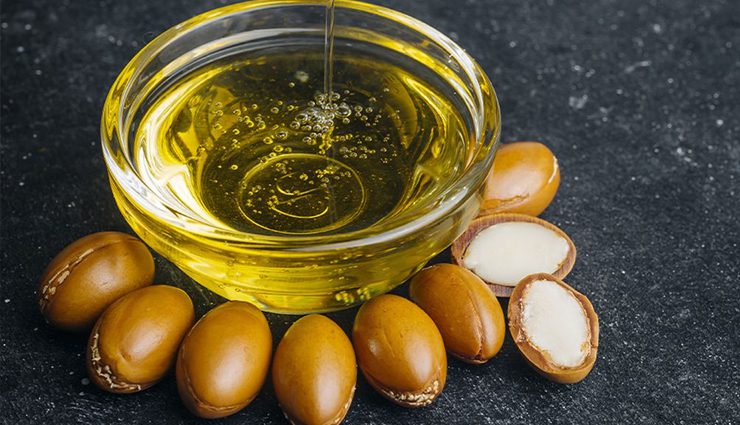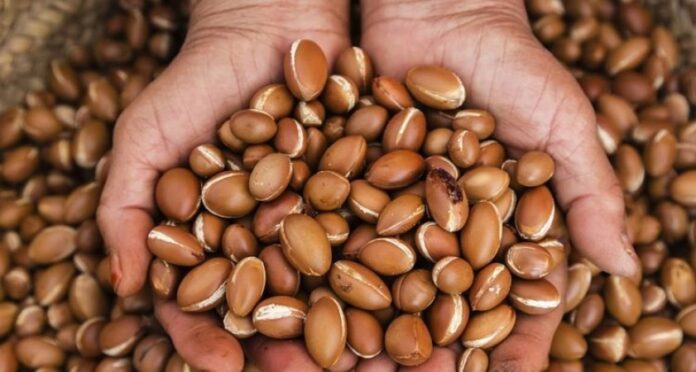Introduction
Good morning readers! My name is Sarah and I’ve been fascinated by natural ingredients and their beauty benefits for years now. Today I wanted to share with you all about a truly amazing ingredient that has been transforming skins and lives around the world – argan oil.
Argan oil comes from the kernels of the argan tree, which is native to Morocco. The argan tree grows almost exclusively in the southwest of Morocco in a geographical area known as the “Argan Forest Biosphere Reserve”. For centuries, argan oil has been prized by the Berber women of Morocco for its nourishing and rejuvenating properties. However, in recent years its popularity has skyrocketed worldwide as a multi-benefit beauty elixir and ingredient.
In this post, I’ll discuss the rich history and origins of argan oil, explain its unique composition and benefits, and share some of the incredible ways it has been revolutionizing skin around the globe. I hope you enjoy learning about this transformative natural ingredient as much as I have! Let’s get started.
The Amazing Origins and History of Argan Oil
Argan oil has truly fascinating origins rooted deep in the culture and traditions of Morocco. The argan tree itself is endemic to the country and can live for up to 200 years. Its fruit contains one to three argan kernels, which have played an important role in Berber life for centuries.
The uniquely difficult process of extracting argan oil has made it a precious commodity throughout Moroccan history. To produce just one liter of oil, it takes approximately 8kg of argan kernels and many hours of laborious crushing and pressing methods traditionally performed by Berber women.
Historically, argan oil held great significance in Berber culture. It was prized for its ability to nourish skin and aid in healing, as well as for its versatility in the kitchen. Berber women would consider the gifting and sharing of hand-crafted argan oil an act of deep friendship, trust and kindness.
Interestingly, argan oil became an integral part of marriage traditions too. A bride’s trousseau traditionally included many jars of homemade argan oil produced from the argan fruit she and female relatives had laboriously crushed and pressed. This oil served not only as valuable trade and exchange goods, but as a symbol of wealth, health and beauty.
While argan oil production was historically woman’s work passed through generations, the rising global demand in recent decades has created jobs and empowered whole rural Moroccan communities through cooperative economic models. Today, argan oil remains deeply intertwined with Berber cultural heritage and has become an ambassador of Morocco’s rich natural beauty secrets worldwide.
The Unique Composition of Argan Oil
Now that we’ve explored argan oil’s meaningful origins and history, let’s take a look at why it has become such a prized natural beauty ingredient. This legendary oil owes its diverse skin benefits to its unique fatty acid profile and nutrient composition.
- High in Vitamin E: Argan oil contains four powerful forms of vitamin E (alpha-, beta-, gamma- and delta-tocopherol), a potent antioxidant that protects skin from environmental damage.
- Omega-6 and Omega-9 Fatty Acids: It has high concentrations of omega-6 linoleic acid and omega-9 oleic acid. These work to maintain the skin barrier, hydrate, soothe inflammation and support collagen production.
- Squalene: As a rich source (up to 30%) of squalene, argan oil mimics sebum and aids the skin in retaining moisture naturally. Squalene is a highly effective emollient.
- Phenolic Compounds: These anti-aging antioxidants help fight free radical damage, reduce reddening/pigmentation and boost hydration.
- Retinol: Argan oil also provides small amounts of retinyl palmitate (a form of vitamin A), imparting anti-aging and skin-renewing benefits.
With this unique cocktail of antioxidants, fatty acids, squalene and retinols, argan oil offers impressive anti-aging, reparative and moisturizing properties valued around the world today. Its amazingly balanced composition nourishes even the most sensitive of skins.
The Amazing Benefits of Argan Oil for Skin
Now that we understand argan oil’s rich backstory and beneficial makeup, I want to highlight some of its incredible skincare perks that are transforming beauty routines globally:
- Hydration
Argan oil deeply hydrates skin without feeling greasy thanks to its ability to mimic natural sebum and lock moisture in. It’s superb for those with dry, flaky skin who need long-lasting hydration. - Anti-Aging Effects
The antioxidants, fatty acids and retinyl palmitate in argan oil give it potent anti-aging benefits. It reduces fine lines and wrinkles over time while brightening and firming the complexion. - Acne Reduction
The anti-inflammatoryomega fatty acids help keep breakouts at bay. Argan oil also has antibacterial effects to prevent further outbreaks when applied to existing pimples and blemishes. - Even Skin Tone
The phenolic compounds combat pigmentation issues, dark spots and age spots caused by sun damage. Argan oil leaves skin glowing with an even, balanced tone. - Scarring & Stretch Marks
Its high vitamin E and essential fatty acid content helps fade the appearance of scars and marks on the skin over continued use. - Skin Soothing
The oil’s anti-inflammatory properties are soothing for conditions like eczema, dermatitis and rosacea. It calms irritated, red skin. - Protection Against Pollution
The potent antioxidants defend the skin barrier against daily stresses from pollution, free radicals and other environmental toxins. - Nourishment
Argan oil nourishes the skin with fatty acids like oleic acid to lock in moisture and balance sebum production for a healthy, youthful-looking complexion.
As you can see, argan oil offers a multitude of skin-perfecting rewards thanks to its uniquely nourishing and restorative composition. Its benefits have made it a hero ingredient in the natural beauty world.
Formulas and Products Featuring Argan Oil
Now that we’re well versed in argan oil’s history, composition and triumphs for skin, I want to explore some of the innovative ways the cosmetics industry has incorporated it into formulas and products revolutionizing routines globally:
- Face Oil
A pure, 100% organic argan oil can be applied to damp skin as a face oil for maximum moisture and anti-aging potency. Look for cold-pressed, unrefined varieties for all the beneficial nutrients. - Serums/Treatments
Many targeted serums and ampoules now feature argan oil for its regenerative powers to fade scars, reduce pigmentation, calm skin and hydration issues. - Moisturizers
Both light gel-creams and rich formulas designed for dry/problem skin include argan oil as a hero hydrating and restorative ingredient. It boosts the effects of other nourishing components. - Makeup Base
A few drops can be mixed with foundation to impart a dewy, healthy glow while keeping makeup from slipping or fading throughout the day. - Hair Products
From oils and masks to leave-in conditioners, argan oil strengthens and softens hair, reducing frizz and adding sublime shine without weighing strands down. - Cuticle Care
A little argan oil rubbed into nail beds and cuticles daily keeps them supple and hydrated to prevent peeling or cracking. - Massage Oil
Its soothing, non-greasy texture makes argan oil perfect for full-body massages to hydrate skin from head to toe while relieving tension. - Lip Balm
The naturally plumping fatty acids in argan oil nourish dry, chapped lips back to a rosy, soft condition all winter long.
Clearly, when formulating for beauty, skin health or hair care needs, argan oil has become an industry go-to for its powerful yet easily absorbed properties. From serums to oils to makeup bases, it delivers results.

Argan Oil’s Impact and Future
With its popularity sharply rising in both beauty products and direct application, argan oil is having impacts far beyond skin deep. I think it’s so fascinating to explore how this super oil has been transforming communities, economies, and ecosystems in ways that positively ripple outward across the globe.
Socioeconomic Empowerment
The booming global demand for argan oil has bolstered formerly impoverished rural regions of Morocco through cooperatives that support local women’s livelihoods in a dignified way.
Ecological Preservation
Communities now rely on the argan forest as a source of income, giving them incentive to protect the unique biosphere it inhabits from overgrazing/deforestation through systematic replanting initiatives.
Cultural Heritage
Younger generations carry on Berber oil-making traditions that were at risk of being lost, preserving their cultural identity and passing skills between women.
Global Education & Awareness
Consumers worldwide now recognize argan oil’s medicinal heritage and appreciate Morocco’s native plants/people more richly due to effective ecotourism and corporate partnership programs.

